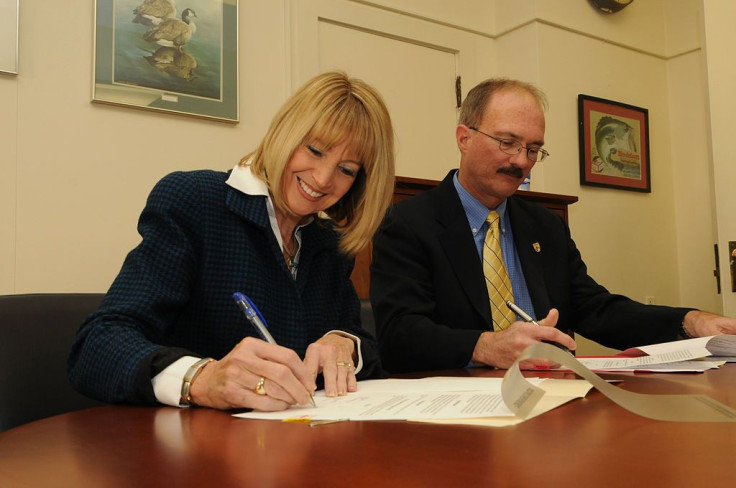Science Editor-In-Chief Marcia McNutt Is First Woman Nominated To Lead National Academy Of Sciences

One of America’s leading scientific groups, which advises the U.S. government on matters ranging from climate change to health policy, announced Tuesday that a council had nominated Marcia McNutt, a geophysicist and editor-in-chief of a leading scientific journal, as its next president. If confirmed, McNutt will be the first woman to lead the group in its 152-year history.
There’s no doubt why the National Academy of Sciences wants to steal McNutt from her current post – she has a long history of displaying leadership at the intersection of science and the public, from her tenure as director of the U.S. Geological Survey from 2009 to 2013 to her current role as top editor of Science.
While at USGS, McNutt aided the government with its response to the Deepwater Horizon oil spill. At Science, she debuted a new open-access, online-only publication called Science Advances at a time when critics of scientific publishing have made a push for more publicly available research and results. She also fought to improve reproducibility in science – a tenet of the field that is often difficult to achieve in reality. Before all that, McNutt started out as a professor at Massachusetts Institute of Technology and Stanford University. She has published more than 100 peer-reviewed papers and won awards for her research on the dynamics of the Earth’s crust and underlying mantle, according to a statement.

But her nomination does prompt the question of why no woman has been deemed worthy of one of the nation’s top scientific posts before now. Across the field, women are still paid less, awarded fewer grants and promoted less frequently than men, according to a 2013 Nature investigation.
McNutt is no stranger to trailblazing -- she was the first woman to serve as Editor-in-Chief of Science in the journal’s 135-year history, and she published an editorial in May alerting faculty of the unconscious bias against women that she has witnessed while reviewing letters of recommendation for graduate-level research grants. She also began her career at a time when the scientific community was far less willing to talk openly about such bias. Today, there is a far more transparent dialogue about the challenges women face within the sciences and many efforts to shift the power balance, such as STEM programs which encourage girls to stick with science throughout school.
In her new role, McNutt will advise the U.S. government on matters from climate change to health policy to international physics experiments through objective and evidence-based evaluation. The National Academy of Sciences represents 2,300 members and 450 foreign affiliates who are elected by peers for outstanding research and scientific accomplishments. Though members of the National Academy of Sciences are technically allowed to submit their own nomination for president at a membership meeting on December 15, they have always endorsed the council’s recommendation in the past.
McNutt will take up her new role when the current president, Ralph J. Cicerone, leaves office on July 1, 2016, and she will also leave Science at that time. Rush Holt, executive publisher and CEO of the American Association for the Advancement of Science said he will begin searching for a new Editor-in-Chief to replace her.
© Copyright IBTimes 2024. All rights reserved.





















